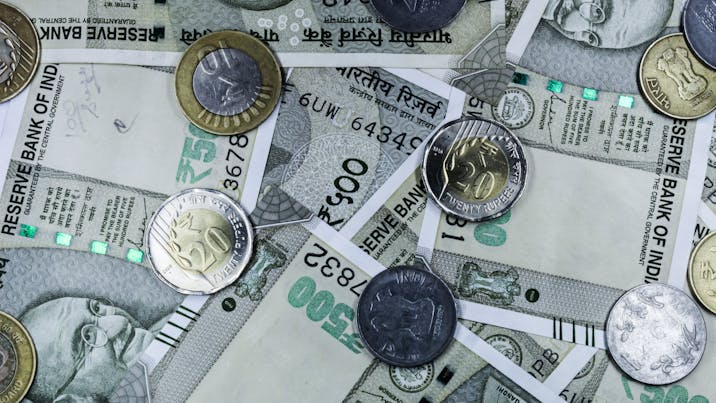
The Indian rupee ended at its lowest closing level on record as global risk appetite remained shaky but dollar sales by state-run banks, likely on behalf of the central bank, curbed further losses, traders said.
India's benchmark equity indices, the BSE Sensex and Nifty 50, closed lower by 0.7% each, tracking weakness in global stocks.
Europe's continent-wide STOXX 600 index fell 1% in early trading while Japan's Nikkei share index ended 0.7% lower.
Global risk sentiment has soured this week as investors have been unwinding carry trades funded by the Japanese yen and amid concerns of a economic slowdown in the United States.
The dollar index nudged higher to 103.1 and most Asian currencies rose with the Indonesian rupiah, up nearly 0.9%, leading gains.
The rupee, however, diverged from its Asian peers and lingered in a narrow range supported by intermittent dollar sales from state-run banks, likely on behalf of the Reserve Bank of India (RBI).
Multiple interventions by the RBI and directions to top banks to avoid large speculative bets against the rupee have made traders wary of taking short positions on the currency, a foreign exchange trader at a state-run bank said.
The central bank kept policy rates unchanged for a ninth straight policy meeting on Thursday, as expected.
Dollar-rupee forward premiums rose, aided by the RBI's decision to retain its monetary policy stance at 'withdrawal of accommodation'. The 1-year implied yield was rose 4 basis points to 2.05%.
"We continue to expect the RBI to start easing from December 2024," Barclays Bank said in a note.
India's foreign exchange reserves rose to a record high of $675 billion as of Aug. 2.